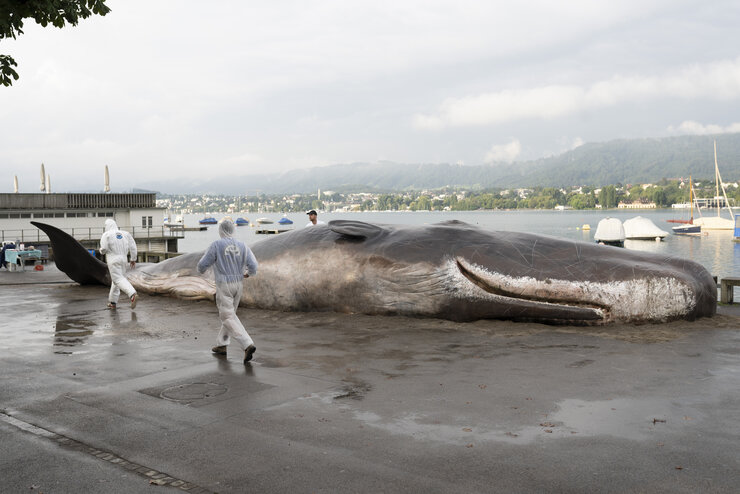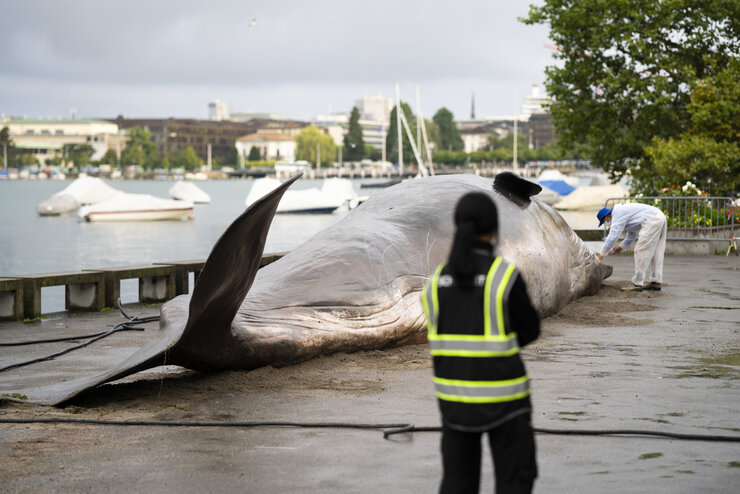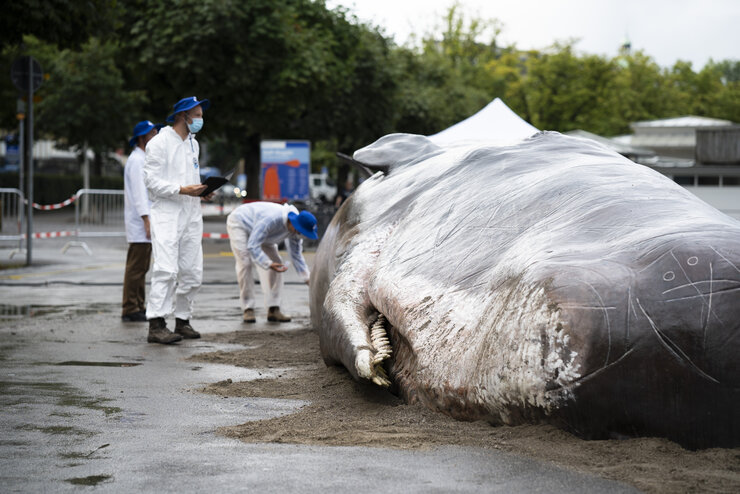
On Monday morning, passers-by discovered a dead sperm whale at the Utoquai in Zurich. In addition to many onlookers, a team of experts was on site from the early hours of the morning looking for explanations for the appearance of the 15-metre-long carcass. Various theories were circulating on the internet. The idea that the whale had been released from a melted glacier was rejected, as was the theory that it could have been the illegal pet of an oligarch living on the lake. Meanwhile, things have become clear: the hyper-realistic model is part of a three-day art action by the Captain Boomer Collective from Belgium, invited by the Zürcher Theater Spektakel in cooperation with the marine conservation organisation KYMA.

The Belgian collective Captain Boomer came up with the idea of a performative whale beaching back in 2008 and has since staged beachings in various major European cities (Paris, London, Warsaw and Madrid) and most recently in Australia: «The beached whale is a massive metaphor for the disruption of our ecological system. Seeing the whale, being faced with the reality of the magnificent animal, people feel their bond with nature, when confronting the whale one enters a world of awe and wonders. When the whale is discovered to be an artwork there is the joy of realizing you’ve been enchanted by a bit of theatre, and left with much to think…», comments Bart van Peel of Boomer Collective.
It is not uncommon for whales that have been weakened by pollution or a lack of food sources to become stranded on seashores. Although Switzerland is a landlocked country, it also shares responsibility: «The installation symbolically shows that Switzerland must do its part to protect the oceans – because, despite sewage treatment plants, the chemicals and microplastics we use end up in the rivers and thus in the sea. We in Switzerland are also contributing to global warming, which has a negative impact on the oceans and marine life», explains Dr Silvia Frey, marine biologist at KYMA sea conservation & research.

For the Zürcher Theater Spektakel, the artistic exploration of ecological issues is a focus that has already run through several festival editions. «With the obviously absurd and very emotional image of a whale beached on the shore of Lake Zurich, we want to raise awareness of environmental destruction, the extinction of species and the threat to natural habitats of a wide variety of creatures. At a time when even the now regularly tangible consequences of the exploitation of nature are met with indifference and denial, it is often artists who succeed in finding powerful images that really reach people», says Matthias von Hartz, artistic director of the Theater Spektakel.
For years, the festival has endeavoured to create a social, political and scientific space of resonance around the artistic programme and, in various formats, has repeatedly invited not only artists but also theorists and activists who deal with ecological issues. Marine experts from KYMA will be talking to interested participants today and on Thursday at 21 hrs at the Stammtisch on the Landiwiese. And on Saturday, 24 August, the environmental engineer and political scientist Malcom Ferdinand («Une écologie décoloniale») will speak on the Seebühne about the historical connection between the exploitation of people and the destruction of nature.
The beached whale can be experienced until Wednesday evening at Utoquai, where experts will be conducting further investigations and answering curious questions from the audience.